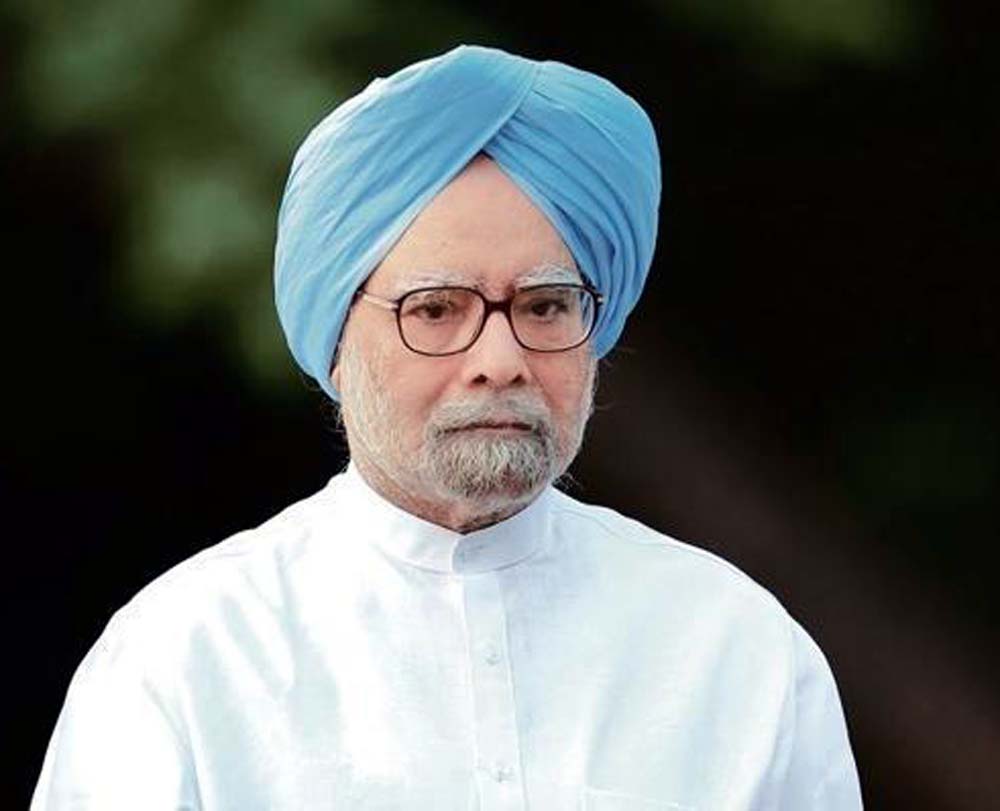New Delhi: Nationalism and the slogan of ‘Bharat Mata Ki Jai’ are being misused to construct a “militant and purely emotional” idea of India that excludes millions of residents and citizens, former prime minister Manmohan Singh said on Saturday, in an apparent attack on the BJP.
Addressing a gathering at the launch of a book on Jawaharlal Nehru’s work and speeches, Singh said that if India is recognised in the comity of nations as a vibrant democracy and, if it is considered as one of the important world powers, it was the first prime minister who should be recognised as its main architect.
Nehru had led this country in its volatile and formative days when it adopted a democratic way of life, accommodating divergent social and political views, Singh said.
India’s first prime minister, who was very proud of Indian heritage, assimilated it and harmonised them into the needs of a new modern India, he said
“With an inimitable style, and a multi-linguist, Nehru laid the foundation of the universities, academies and cultural institutions of Modern India. But for Nehru’s leadership, independent India would not have become what it is today,” Singh said.
“But unfortunately, a section of people who either do not have the patience to read history or would like to be deliberately guided by their prejudices, try their best to picture Nehru in a false light. But I am sure, history has a capacity to reject fake and false insinuations and put everything in proper perspective,” he said.
The book, Who is Bharat Mata, by Purushottam Agrawal and Radha Krishna, contains selections from Nehru’s classic books Autobiography, Glimpses of World History and the Discovery of India; his speeches, essays and letters from pre and post independence years; and some of his most revealing interviews. It was first brought out in English and now its Kannada translation has been released.
The book also comprises reminiscences and assessments of Nehru by some of his contemporaries such as Mahatma Gandhi, Bhagat Singh, Vallabhbhai Patel, Abul Kalam Azad, Aruna Asaf Ali, and Atal Bihari Vajpayee, among others.
“It is a book of particular relevance at a time when nationalism and the slogan of ‘Bharat Mata Ki Jai’ are being misused to construct a militant and purely emotional idea of India that excludes millions of residents and citizens,” he said.
Singh also extensively quoted Nehru, saying he had asked, “Who is this Bharat Mata? whose victory you wish?”
“The mountains and rivers, forests and fields are of course dear to everyone, but what counted ultimately is the people of India…spread out all over vast land,” Singh quoted Nehru as saying.
Nehru declared unequivocally that ‘Bharat Mata’ is essentially these millions of people, and victory to her is victory of these people, he said.
In the pages of this carefully complied anthology, Nehru emerges as a remarkable man of ideas and as a leader who, despite the compulsions of politics, remained a true democrat, the former prime minister said.
Nehru’s legacy continues to be of immense significance — “perhaps more today than at any other time in our history”, he said.
“The purpose of this book is to show to the entire world and more particularly to India, how Pandit Nehru and his idea of India, built on Gandhian principles, harmonising the past and the present free from communal discords, is the only way to promote the inevitable plurality of our country,” he said.
Nehru makes a very significant and time relevant remark on the dangers of leadership falling into a trap and getting removed far away from the common people whom they are supposed to serve, Singh said.
“Conceit, like fat on the human body, grows imperceptibly, layer upon layer and the person whom it affects is unconscious of the daily accretion. Fortunately, the hard knocks of a mad world tone it down or even squash it completely, and there has been no lack of these hard knocks for us in India.
“The school of life has been difficult one, and suffering is a hard task master,” he quoted Nehru as saying.
In an atmosphere, when emotions are deliberately provoked and the gullible are misled by false propaganda, misusing communication technology, this book makes a refreshing breakthrough, Singh said.
An understanding of Nehru’s political and intellectual journey is a pre-condition for India’s survival as a democratic polity as a humane, compassionate society, Singh said.
PTI
